Father Marco, a sort of folk hero at my Catholic high school, seemed immune to the effects of aging. At 82-years-old, he still taught a full schedule of classes and attended countless sporting events. He had a rock solid memory, an impressive intellect, and a witty sense of humor.
Is it just luck that his cognitive functioning stayed sharp for so long? Or good genetics? What is it exactly that determines the fate of our brain cells? While the answer isn’t simple – it rarely is when we’re talking about the human brain – the scientific community has recently discovered that we have more power than we think we do when it comes to maintaining optimal brain function.
“The dogma for the longest time was that adult brains couldn’t generate any new brain cells. You just use what you were born with,” says Dr. Amar Sahay, a neuroscientist with Massachusetts General Hospital. “But the reality is that everyone has the capacity to grow new brain cells that enhance cognitive functions – at any age.”
Based on the latest research, here are 5 activities known to encourage the growth of new brain cells and keep you mentally sharp:
Neurogenesis
The brain’s ability to generate new cells is known as neurogenesis. It’s a vital function to maintain optimal brain functioning and mental health. In fact, the inevitable loss of motor (movement) and cognitive (thinking) skills that comes with old age happens because old brain cells are dying off faster than new ones can come online. This happens because the number of new cells that get created – and how quickly they are created – declines as you get older. But the choices you make play a big role in how this process plays out. Scientists have identified certain factors that seem to amp up the process of neurogenesis, with a whole host of amazing benefits for young and old alike. The more I learned about these factors, I realized: Fr. Marco did (almost) all of these things! No wonder he seemed immune to the effects of aging.

1. Dust off those workout clothes
Breaking news: Exercise is good for you. White its wide-ranging benefits have been known for decades, the biological underpinnings have been difficult to explain. Now scientists think they have discovered one of the primary ways exercise leads to such diverse benefits as a better mood and lower rates of Alzheimer’s: it promotes the growth of new brain cells, especially in the hippocampus. The hippocampus is the brain region responsible for learning, storing long-term memories, and regulating emotions. Sustained aerobic exercise in particular (think: jogging, swimming and power walking) has been found to increase the growth of brain cells in this part of the brain. A study from the University of Pennsylvania found that aerobic exercise increased the size of the hippocampus by quite a bit – 2% on average – and reversed age-related cell loss by 1 to 2 years. It does this primarily by producing a protein known as BDNF, which acts like a fertilizer for brain cell growth.
Even at 82-years-old, Fr. Marco jogged 3 miles every morning on the high school track. Whether he knew it or not, this jog provided the fertilizer that kept his brain producing new neurons and keeping his mind sharp.

2. Soak in the sunshine
When you are exposed to sunlight, your body produces Vitamin D. It’s been found that Vitamin D then increases levels of BDNF in the brain – that magical ‘fertilizer’ that promotes and regulates the process of neurogenesis.
Just like sunshine is an essential ingredient for making compost and fertilizing plants, it’s also an essential ingredient for fertilizing humans!
So get out and soak in the sunshine. Your brain will thank you for it.
Fr. Marco, for his part, spent plenty of time in the sunshine. He loved football, lacrosse, and soccer, and he hardly missed a chance to attend the students’ games.
3. Have sex… or relieve stress another way
Sex has been found to spur the growth of brain cells. A 2013 study found that both single and repeated sexual experiences led to the growth of new brain cells. The benefits, however, did not last forever. A prolonged withdrawal period erased the gains, indicating that frequency is as important as the act itself.
Dr. Sahay suggests that it is not so much the physical act of having sex as much as what it does: relieve stress. “Sex is pleasurable and a stress reliever, and research shows that chronic stress blocks neurogenesis,” says Dr. Sahay. “So any activity you find rewarding and that lowers stress levels can have a similar effect.” Meditation, for example, has also been linked to neurogenesis in numerous studies. Considering that stress levels are on the rise all over the world, it’s vital information to know that stress blocks the growth of new brain cells – and also that our everyday choices can reverse that process.
But if you are tired and feel more like sitting on the couch and eating chocolate than exercising, meditating or having sex, I have some great news…

4. Munch on dark chocolate covered blueberries
They don’t actually have to be dark chocolate covered blueberries, but dark chocolate and blueberries have both been linked to neurogenesis. How? They both contain flavonoids, chemicals found in many foods that have been linked to increased neural growth.
Fr. Marco loved dark chocolate. Seriously.
And if you are not quite ready for dessert, eat foods rich in Omega-3 fatty acids, like avocados and fatty fish (think: tuna, salmon, herring, and sardines). Turmeric, that delicious yellow spice that stains everything it touches, has also been linked to neurogenesis and the repairing of damaged brain cells.
Last but not least, have some tea before bed! For best results, drink green tea! The compound epigallocatechin gallate (EGCG), which is found in green tea, has been linked to the growth of new brain cells.
Now, I must say, nutrition science findings should be taken with a grain of salt 😉 The difficulty of isolating variables and getting accurate reports from subjects is what leads to so many contradictory findings in this field. I would say the research on exercise and stress relieving activities, as well as the next one on engagement, have an even more solid backing than this dietary advice – in terms of neurogenesis. But it helps me eat chocolate with less guilt.
5. Brush your teeth with your other hand
Pushing yourself out of your comfort zone, into what researchers call enriched learning environments, has been found to encourage neural growth. Let’s look at some examples, which cover a wide range of different tasks.
A 2015 study in The Journal of Neuroscience found that playing three-dimensional video games improved memory performance 12% more than playing two-dimensional games. The researchers suggested that this is due to the increased complexity – the three-dimensional games require storing and recalling more information. Dr. Sahay, from Massachusetts General Hospital, says this study has implications beyond video games: “Any type of similarly enriched experience that makes you focus your attention, even for brief periods, can have the same effect in the hippocampus,” he says. He went on to say that it can be as simple as brushing your teeth or eating your food with your non-dominant hand. Or as big as traveling, learning a new skill or language. Whatever it is, living in these enriched learning environments has been found to encourage brain cell growth.
So challenge yourself. Seek out tasks that are a little more difficult, and require you to be focused and engaged.
Do you have other ideas of how to have more enriching experiences throughout your day? Add them in the comments section below.
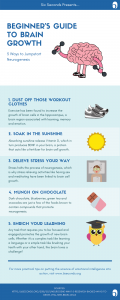
The Gist
We have choices to make that have real consequences for our brain’s ability to generate new cells, and in turn, perform important functions.
So take what you’ve learned here, and go grow some new brain cells!
What’s new in emotional intelligence?
From Enemy to Ally: How Eric Pennington Changed His Relationship with His Own Emotions – and Found His Life’s Purpose
How emotional intelligence helped Eric Pennington transform corporate life setbacks into strengths – and find purpose in both work and life.
Helping Others Achieve Overall Well-being and Healthy Connections: How Emotional Intelligence Guided Pamela Barker’s Career Path Growth
Pamela Barker’s journey began with healing bodies, but it was her discovery of emotional intelligence that unlocked her true purpose: helping others achieve overall well-being and healthy connections. From her days as a physical therapist to becoming a passionate EQ coach, Pamela’s story is one of transformation, resilience, and the power of connection. Her experience shows that real change starts from within.
Harnessing Emotional Intelligence: How Sara Canna Supports Employees and Transforms People’s Lives at the World Health Organization (WHO)
Emotional intelligence is more than just a buzzword—it’s a transformative tool that can reshape how we navigate challenges, build relationships, and thrive in demanding environments. Discover how Sara Canna brought EQ to the World Health Organization, empowering employees to manage change, stress, and personal growth.
From Corporate Consultant to Coach: Elise Jones’ Emotional Intelligence Journey-Voices from the Network
Elise Jones transformed her career by embracing emotional intelligence, shifting from a corporate consultant to a passionate EQ Coach. Through authentic connections, she found deeper fulfilment, proving that strong relationships are key to a happier, more meaningful life.
Want to Manage Your Emotions More Effectively? Find Time to Journal About Challenging Experiences
Daily journaling to reframe unpleasant events can significantly reduce depressive symptoms, lessen stress, and increase life satisfaction.
A Journey through Empathy & Optimism: Amy Jimison in Voices from the Network
When you feel stuck and can’t see a way out, how do you navigate change? Certified Coach and leadership expert Amy Jimison shares her approach.
- Pursue Noble Goals in the Six Seconds Model of EQ - July 29, 2023
- Increase Empathy in the Six Seconds Model of EQ - July 26, 2023
- Exercise Optimism - July 24, 2023


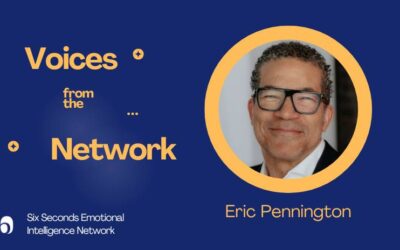
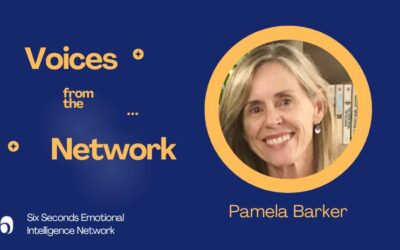

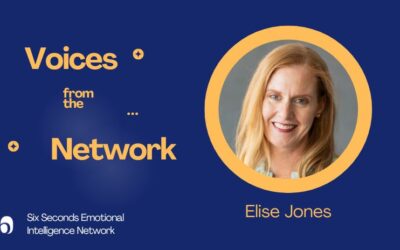


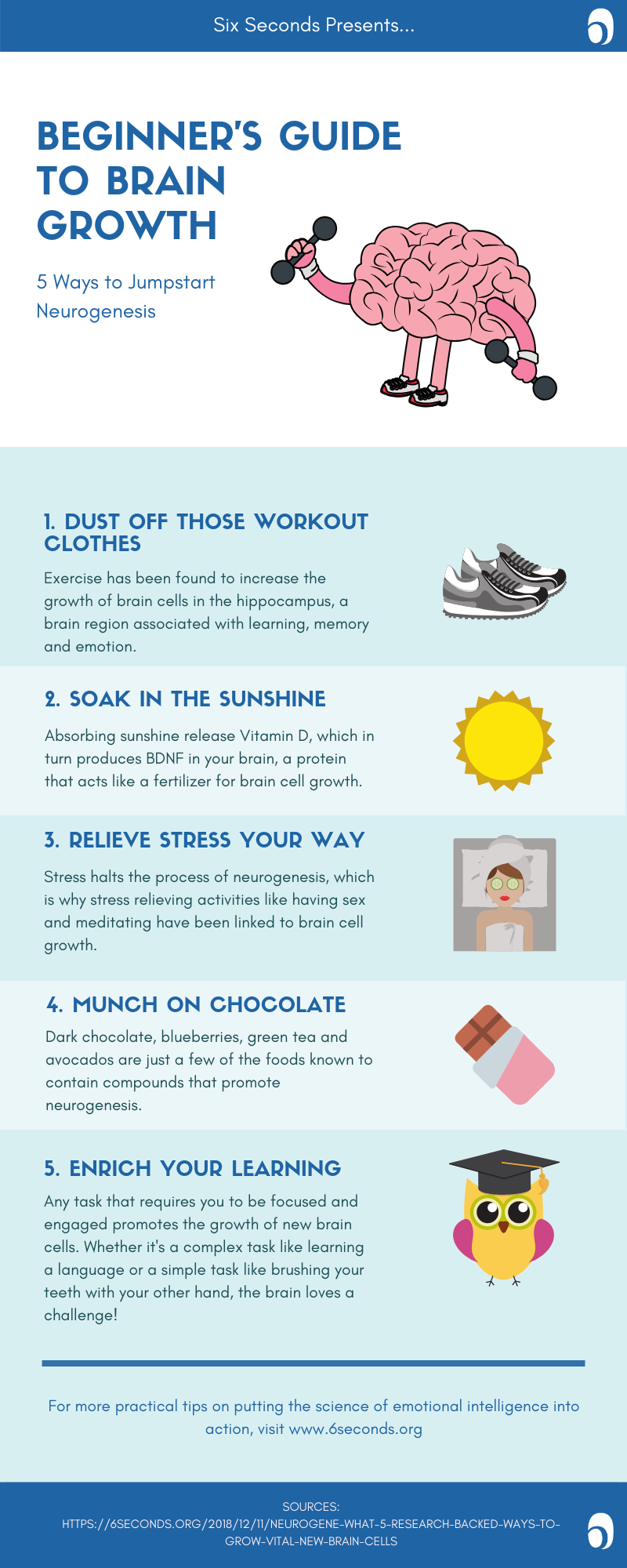
Wow wow , thanks so much for this useful tips , honestly most times i lost focused and when I read I don’t understand it at all and to recall or remember becomes a huge problem to me . I have to engage myself in all these .
Is it really, really, really true that everyone , whether young or old, can grow new brain cells?
How about a brain tumour patient? Can he, she grow new brain cells after MRI scans, after in remission for 25 years after being / undergone major brain tumour removal surgery and radiotheraphy?
I don’t know, but I strongly suspect yes. That doesn’t mean they will grow BACK damaged cells, or grow ALL the cells they need. But our brains are constantly rewiring and growing, it’s one of the fundamental functions.
Global: Used in 157 countries & territories
Does it mean you have it in my country, which is Ukraine?
Hi Romana! We do have Network Leaders in Kyiv for sure, and possibly other parts of Ukraine. I recommend getting in touch with Katharine Roff, our Regional Network Director for Europe: [email protected]. We’d love to have you as part of the community!
Wow. Thanks so much. You captured in a nutshell key ideas to keep your brain growing. This short article is an elegant summary of important factors to keeping relevant and resillient.
Hi, Jessica! It’s my pleasure and thank you. It’s fascinating research, isn’t it?
Thank you for this information! I am a 48 year old woman experiencing memory loss and am afraid of it being a sign of dementia…..I have been trying to find affordable, wholistic ways to heal this and gain hope. If there are any more steps that can be added, or changes made, to help me strengthen my cognitive abilities please send me the information. Thank you.
Hi Sadia! No problem. I am so sorry to hear that you are experiencing memory loss. I’m glad the article could shed some light on the scientific consensus around ways to combat memory loss – though, of course, I wouldn’t use it as a replacement for doctor’s advice. Thanks for reading!